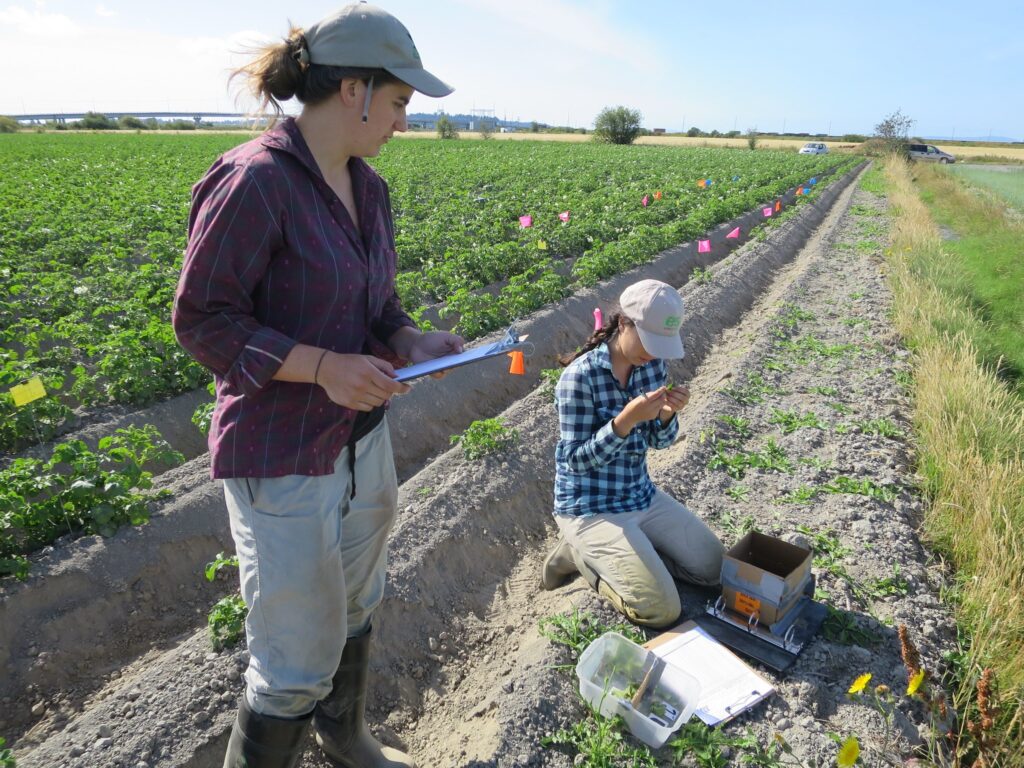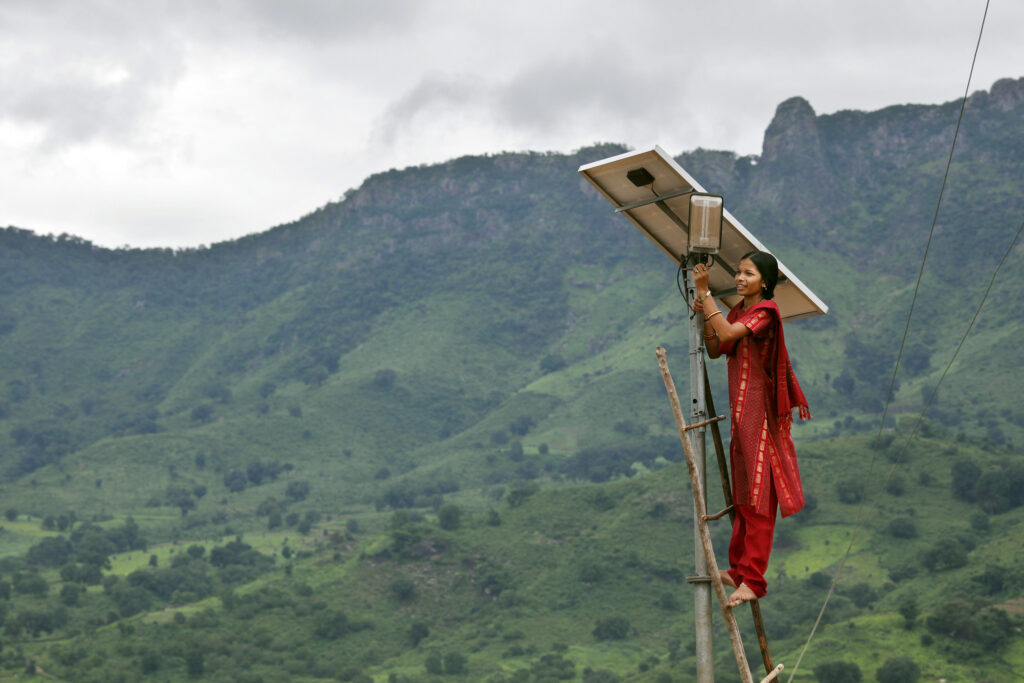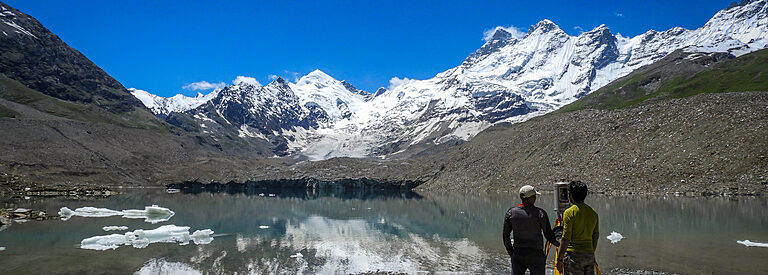Published: 11/27/2023
Stanford researchers highlight the urgency and importance of acknowledging emotions about climate change in research and education
By Jamie Hansen, Global Health Communications Manager
Emotional responses to the mounting environmental challenges of our time can play an especially important, but often under-recognized, role for researchers and students studying and investigating climate change.
“When wildfire smoke makes it dangerous to even go outside, it’s easy to feel overwhelmed or hopeless,” said Peter Pellitier, PhD, a postdoctoral fellow in the Stanford Doerr School of Sustainability. “It can be a bit of psychological gymnastics to understand if your research is mattering and to stay motivated or interested in the classroom.”
Pellitier is lead author* on a recent publication in Nature Climate Change that describes the impact that emotional responses to climate change such as grief, hopelessness, and despair can have on educational and research outcomes.
This recent study is based on learnings from a course taught at Stanford last winter by Pellitier and Britt Wray, PhD, Director of CIRCLE at Stanford Psychiatry, a research and action initiative focused on community-minded interventions for resilience, climate leadership, and emotional wellbeing in the School of Medicine. David Palumbo-Liu, PhD, professor of comparative literature in the School of Humanities and Sciences, also contributed to the course. The publication’s authors offer insights for educators and research mentors on how to effectively acknowledge and work with these emotions in the classroom context.
We’re still learning as an academic community how to teach climate science – not the science itself, but the context and delivery. As the climate changes and extreme events become more common, this has become a moving target.
Peter Pellitier, PhD
“We’re still learning as an academic community how to teach climate science – not the science itself, but the context and delivery. As the climate changes and extreme events become more common, this has become a moving target,” Pellitier said.
Pellitier’s desire to develop a course on climate emotions in the academic setting formed through his dual interests in climate science and education. Pellitier studies how forest ecosystems sequester carbon and respond to climate change in the Peay Lab in the Department of Biology in the School of Humanities & Sciences and also has a master’s degree in education. He began to note, in his colleagues and himself, an uncertainty about how to respond to the climate crisis.

“I think that uncertainty permeates the classroom. There are significant questions about how to teach in a way that respects the moment. New teaching approaches are needed to teach in a manner that facilitates sustained interest, rigor and resilience,” he said.
Pellitier reached out to Wray, then a planetary health postdoctoral fellow at the Center for Innovation in Global Health studying the impact of climate change on young people’s emotions and mental health. Her research has documented the widespread negative impact of climate change — and the lack of effective government response – on young people. They met over coffee and began to discuss the idea for a course that would explore how these emotions impact learning and research.
They launched Confronting Emotions in the Climate Sciences in the winter of 2023. The course brought together about 25 students – a mix of graduate and undergraduate students from disciplines including the natural sciences, economics, law, statistics, and communication. They all shared a recognition of the manifold ways that climate concerns were impacting some students’ motivation and engagement – and a sense that the educational system hadn’t really adapted to meet this reality, said Pellitier.
The course also purposely explored a variety of different cultural perspectives and a range of possible emotional responses to climate change.
“Given the global nature of the crisis, it was important for us that the course did not just explore climate emotions and the emerging field of climate psychology as it has been created from a Western perspective,” said Wray. “We included lessons on environmental justice, climate colonialism and reparations, contemplative practices from wisdom traditions, fossil fuel industry malfeasance, climate storytelling, and how these intertwine with multifaceted feelings that many people are reporting in this moment that spread from courage, love, and hope to anxiety, despair, and outrage.”

Michelle Ng, a PhD candidate in Communication and master’s student in E-IPER, said she was drawn to the course because of how closely it aligned with her research. She studies the psychological factors that impact people’s decisions to take steps to adapt to climate change.
“I think it’s easy to compartmentalize climate emotions, to view them as uncomfortable or inconvenient evidence of your humanity while doing ‘objective’ scientific research,” said Ng, who also co-authored the recent publication. “This course did a great job making space for all emotions and acknowledging they come from a place of care.”
Some key themes emerged during the course, which the authors highlighted in their publication.
These include:
- Minimizing stigma or feelings of isolation about climate emotions by offering structured, non-judgmental opportunities for students to discuss their emotions openly
- Providing hope and motivation by offering clear, uplifting examples of climate progress or tangible ways to make a difference such as partnerships with local communities
- Recognizing that the act of conducting science can act as an effective means to reduce challenging emotions surrounding the climate.
- Acknowledging and making room for the broad range of emotions and experiences that students bring based on their diverse backgrounds and lived experiences
Ng said she was most excited to highlight the roles of community and collective action as ways to bolster students’ senses of belonging and agency.
“When you have this huge unjust global problem that no individual can address on their own, that sense of futility can lead to negative emotions,” she said. “But if there’s a way to have a small win here and there at the local level — for instance, leaving the lab and working in community to support a resident-led climate project — maybe that’s a way to help manage your climate emotions and make the work more sustainable.”
Read the full list of recommendations in Nature Climate Change.
Ways to embrace climate emotions in higher education
Following are some ways the authors recommend that instructors, research mentors, and institutional leaders can help students and researchers engage productively with their climate emotions.
For Instructors:
- Offer structured classroom activities to collectively explore climate emotions without judgment
- Provide curated readings highlighting the scope and complexity of climate emotions experienced by professionals in the field
- Instructors may consider sharing their personal experiences with climate emotions
- Offer uplifting examples of tangible climate progress to help channel challenging emotions into action
Research Mentors:
- Foster graduate students’ sense of agency in responding to climate change by highlighting positive research outcomes
- Highlight and share academic publications, news articles and narrative writing about climate emotions to reduce sense of alienation
- Organizing outreach events with local museums or citizen science organizations can foster a sense of connection to the local ecosystem and the community
- Mentors may wish to seek additional training in this evolving area, or ask students how they can best be supported
Institutional Leaders:
- Host climate cafes – gatherings where people of all career-stages can speak frankly in a validating setting about how climate change impacts their lives
- Departments can offer resources for grappling with climate emotions online and during graduate onboarding events.
- Invest in trainings for staff, faculty and instructors who work closely with students studying climate change
*Michelle Ng, Sierra R. Castaneda, and Susanne C. Moser were co-authors on the publication. Britt Wray was senior author.
Cover image caption: Glaciologists monitoring the changes happening on Gepang Gath Glacier due to increasing temepratures. Such research can elicit a range of emotions about climate change on the part of researchers, which can impact their motivation and engagement. Rakesh Rao / Climate Visuals Countdown

